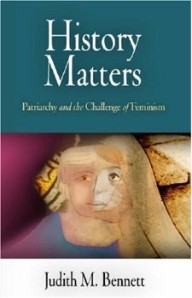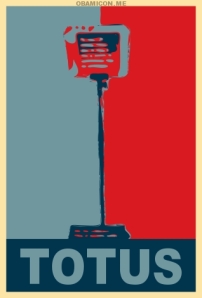 Here are some more highlights from Saturday, March 28 at the Organization of American Historians’ annual meeting in Seattle. (In case you missed it, Part I of my wrap-up is here.) As I was pulling myself together for my 8:30 a.m. session, I ran into Tenured Radical, who confessed that she was feeling a mite queasy. (Was she ever! Poor thing.) But, the show must go on, and I was looking forward to hearing Mary P. Ryan’s comments at the women’s lunch at noon. My next post will cover Ryan’s comments at lunch–please allow me to indulge in some in-depth reporting on the “State of the Field” roundtable I was on, as I think some of the issues raised there may be of interest to many of you, because we’ve chewed over some of these questions here before.
Here are some more highlights from Saturday, March 28 at the Organization of American Historians’ annual meeting in Seattle. (In case you missed it, Part I of my wrap-up is here.) As I was pulling myself together for my 8:30 a.m. session, I ran into Tenured Radical, who confessed that she was feeling a mite queasy. (Was she ever! Poor thing.) But, the show must go on, and I was looking forward to hearing Mary P. Ryan’s comments at the women’s lunch at noon. My next post will cover Ryan’s comments at lunch–please allow me to indulge in some in-depth reporting on the “State of the Field” roundtable I was on, as I think some of the issues raised there may be of interest to many of you, because we’ve chewed over some of these questions here before.
State of the Field: Gender and Sexuality in Early American History featured Carol Karlsen, Jennifer Spear, Todd Romero, Historiann, and Susan Juster serving as chair and moderator. Kirsten Fischer organized this panel, and it was co-sponsored by the Steven J. Schochet Endowment for GLBT Studies and Campus Life, although she was unable to be with us because she is on leave this year and out of the country.
- Karlsen offered what she called “the long view” of these topics and said there wasn’t much historiography to speak of until the mid-1990s, but that what has appeared since then has revolutionized our view of early American history with insights about the intersectionality of race and gender, the idea that urban environments are spaces for negotiation, the importance of masculinity as well as examining women’s gender roles, and the notion that the sexual conquest of women of color was central to the colonization of the Americas. Continue reading







